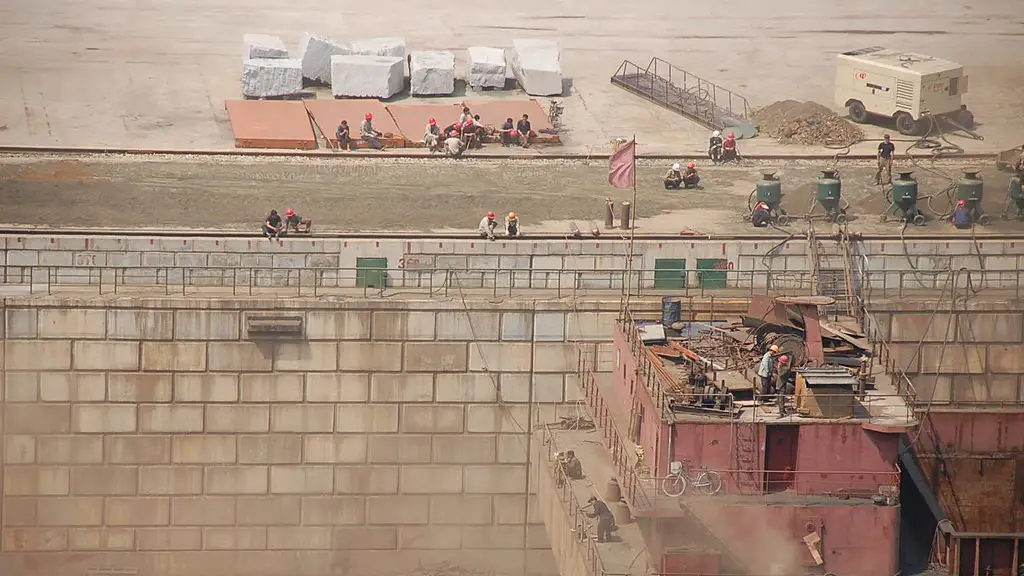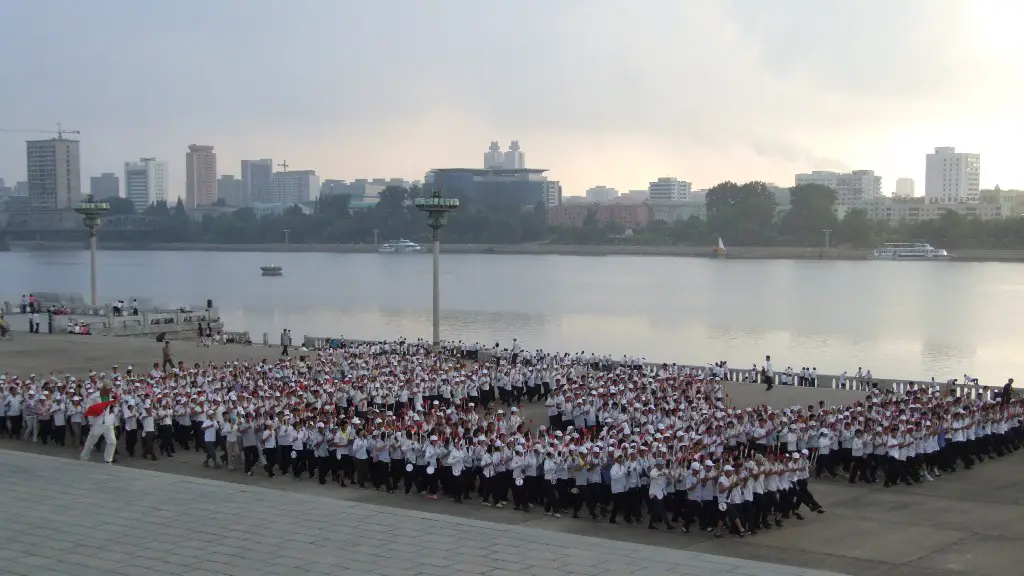Relationships between North Korea and China
North Korea and China have a long and complicated relationship, with the two countries having strong political and economic ties. China is North Korea’s most important ally and has consistently been one of the few countries to support North Korea’s government and policies. The two countries have a shared history, with both having been involved in the Korean War in the 1950s. China has continually provided economic and military support to North Korea since the end of the war, and North Korea has relied heavily on China for support and aid.
In recent years, the relationship between North Korea and China has become even closer. China has consistently backed the North Korean government, despite international condemnation of its actions, including its nuclear weapons program. China has also provided North Korea with economic aid and trade, as well as diplomatic and political support. The two countries have developed a mutual trust and have become increasingly interdependent in both economic and political matters.
China’s Motivations for Helping North Korea
There are several possible motivations for China’s support of North Korea, with the most likely being China’s desire to maintain stability in the region. China is deeply concerned about the potential volatility of a reunified Korea, as it could lead to an even greater U.S. presence in the region. North Korea’s nuclear weapons also create an incentive for China to maintain its support of the North Korean government, as a nuclear-armed North Korea gives China another counterbalance to the United States in the region.
Economic interests are also likely a factor in China’s support of North Korea. North Korea is an important trading partner of China, and China derives economic benefits from its trade deals with North Korea. Additionally, China’s investments in North Korean infrastructure projects and its development of partnerships with North Korean businesses gives China a foothold in the country’s economy.
Finally, there is a geopolitical aspect to China’s support of North Korea; the two countries share a border and the Chinese government is likely interested in maintaining a friendly neighbor in the region. North Korea’s nuclear weapons also provide an element of deterrence for China, as it gives China an extra layer of protection against foreign military intervention in the region.
International Sanctions on North Korea
International sanctions have been imposed against North Korea as a means of pressuring the North Korean government to abandon its nuclear weapons program. These sanctions have had a significant effect on North Korea’s economy, leading to shortages of food and medicine and a sharp drop in the country’s GDP. However, the Chinese government has been supportive of North Korea throughout this period and has resisted calls to impose harsher sanctions on North Korea.
China has been reluctant to further pressure North Korea, as it fears that it would destabilize the region and lead to unpredictable consequences. China has consistently argued for a negotiated solution and for a gradual, phased approach to denuclearizing North Korea. China also believes that sanctions have failed to get North Korea to abandon its nuclear weapons program and that a more diplomatic approach is necessary.
Another factor motivating China’s stance is its economic relationship with North Korea; as mentioned previously, China has large investments in North Korea, and it is reluctant to see these investments affected by further sanctions. Additionally, China is concerned that a collapse of the North Korean government would lead to instability in the region and an influx of refugees into China.
China and the Trump Administration
The Trump Administration has taken a hard stance against North Korea, with U.S. President Donald Trump consistently referring to the country as a “rogue state” and threatening military action. The Administration has also pushed for tougher sanctions against North Korea, and has been critical of China for not doing enough to curb North Korea’s nuclear ambitions.
However, China has resisted the pressure from the U.S., arguing that sanctions alone will not resolve the issue. China has instead proposed a gradual, negotiated solution, and has insisted that any such solution must involve the direct participation of North Korea. China has also made it clear that it will not support any military action against North Korea, and that it believes that negotiations are the only way to achieve a peaceful solution.
Conclusion of China’s Assistance to North Korea
It is clear that China’s motivations for helping North Korea are complex. China’s support of North Korea is likely driven by a combination of factors, including its desire to maintain stability in the region, its economic interests, and its interest in preventing U.S. military intervention in the region. China is also reluctant to impose further sanctions on North Korea, as it believes that these would further destabilize the region. Finally, China is staunchly opposed to any military action against North Korea and has insisted that any solution must involve a negotiated solution.
North Korea’s Ability to Rely on China for Help
North Korea has become heavily reliant on China for its economic and political survival. As China is the only country that continues to provide support for North Korea’s government, the North Korean government is able to rely on China to continue to provide assistance in the face of international condemnation. Furthermore, as North Korea is heavily dependent on trade with China, it has an incentive to maintain strong ties with the country. Finally, North Korea’s nuclear weapons program gives it an extra layer of protection against foreign intervention in the region, and the Chinese government is likely reluctant to let this protection slip.
China’s Role in Resolving the North Korea Crisis
Given its close relationship with North Korea, China is in a unique position to help resolve the crisis. China has consistently advocated for a negotiated solution to the crisis, and has insisted that any solution must involve direct talks between North Korea and the United States. China has also resisted calls for tougher sanctions, arguing that such sanctions would only lead to further instability in the region. Finally, China is opposed to any military action against North Korea, and has made it clear that it believes that negotiations are the only way to achieve a peaceful resolution of the crisis.
International Reactions to China’s Assistance to North Korea
International reactions to China’s assistance to North Korea are mixed. Some countries view China as an important partner in resolving the crisis, while others view China as a hindrance. The Trump administration has consistently condemned China for not doing enough to rein in North Korea’s nuclear ambitions, while China has argued that its approach of advocating for a negotiated solution and resisting tougher sanctions is the best way to bring about a peaceful resolution.
Implications of China’s Assistance to North Korea
China’s assistance to North Korea has significant implications for the security of the region. China’s support allows North Korea to remain a viable state, and prevents the United States and its allies from taking any military action against it. Additionally, China’s economic support for North Korea gives China a foothold in the country’s economy and a degree of control over the North Korean government. Finally, China’s stance on sanctions gives North Korea some breathing room in terms of its nuclear program, and makes it more difficult for the international community to pressure the North Korean government to denuclearize.



